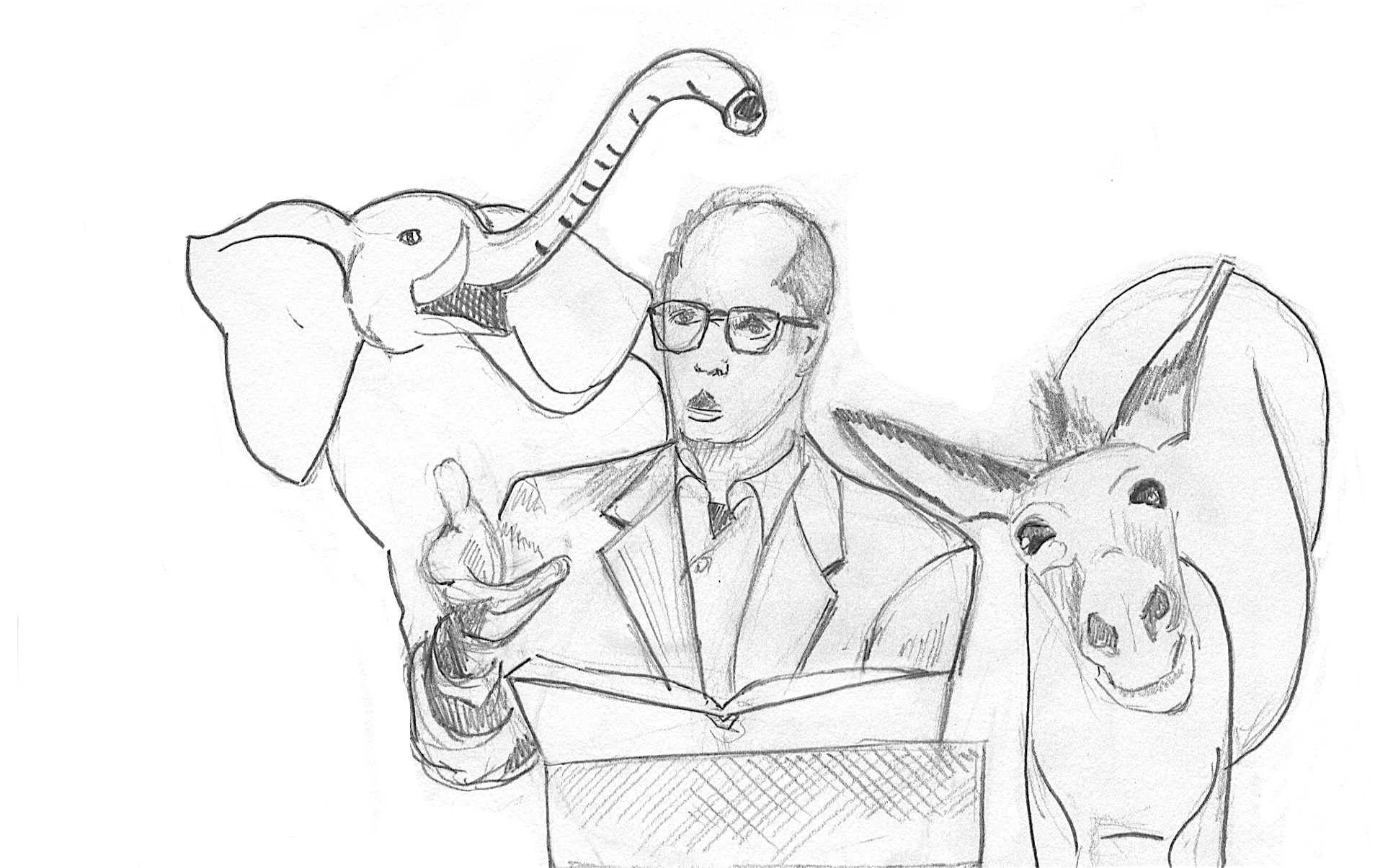It is no secret that political advocacy is an important part of students’ lives around campus, but should it be the same for professors? In some classes at the College of William and Mary, professors have begun to reveal which candidate they will be voting for in the upcoming presidential election. This begs the question: How much partiality is appropriate in the classroom? In my opinion, not much.
I am proud of our student body’s willingness to be politically active and comfortable with different opinions, but I am wary that the polarization in this election could cause problems if the faculty get involved. I have noticed that my friends avoid discussing politics and other controversial topics relating to the election. They want to avoid subjects that could potentially create rifts in their relationships. It feels like the political climate in our community has the potential to turn volatile.
Faculty involvement creates a whole new dimension to this issue. With such a small student-to-faculty ratio at our college, professors are looked at even more as authority figures and mentors — people who are supposed to have the answers to our questions. Their personal opinions given in class can be mistaken for facts, creating the possibility for students who have different views to be alienated. And I believe that the last thing we need is more conflict and more divisiveness in this election.
Granted, professors are human beings too, with their own opinions. I believe that they have the right to express their viewpoints with students as well, but the classroom is not the appropriate setting. Students need to learn to think independently in their college years. We are in the stage of our lives between being told what to believe and being expected to know what we believe on our own. Without independence and freedom of thought, some can find themselves trapped in that first stage, continually looking for someone else to tell them what is right and wrong instead of deciding for themselves.
If the instructors express their personal opinions, no matter how common their viewpoints might be, it can discourage the minority of students who share different beliefs from participating in the dialogue.
The classroom is an important place to break away from dependence because it is where most learning takes place. Within, the professor’s job is to stimulate discussion among the students. If the instructors express their personal opinions, no matter how common their viewpoints might be, it can discourage the minority of students who share different beliefs from participating in the dialogue. I imagine that the students who would back away are the ones that the professors want to reach most.
One of the justifications that I have heard for the professors’ behavior has been that the current election is a special case — that there is simply too much at stake for our nation to get it wrong. I am not going to argue that point, but I am worried about what kind of precedent that this thought process sets for the future. If we consent to allowing partiality within our classrooms this year, I would expect to see it again in the future. No matter how small, we will have not only acknowledged that there is some underlying bias in our classes, but that it is acceptable as well. If the political climate continues to worsen and our nation has another election similar to this one in the coming years, then professors will again have the right to draw on their individual beliefs when teaching classes, compounding the problems that we are witnessing now.
So, in the same way that I believe there must be a separation between church and state, professors must let go of their personal opinions the second they step foot inside their classrooms. We are attempting to encourage personal growth here at the College, growth that involves learning facts and drawing conclusions on our own. Imagine a public defender who did not argue his client’s case out of disbelief, or a governmental official who did not enforce a policy due to conflicting personal interests. These people would not be doing their jobs. In the same way, professors are responsible for molding their students into model thinkers, not models of themselves. The only way for students to take two steps forward is for teachers to take one step back.
Email Noah Petersen at njpetersen@email.wm.edu

